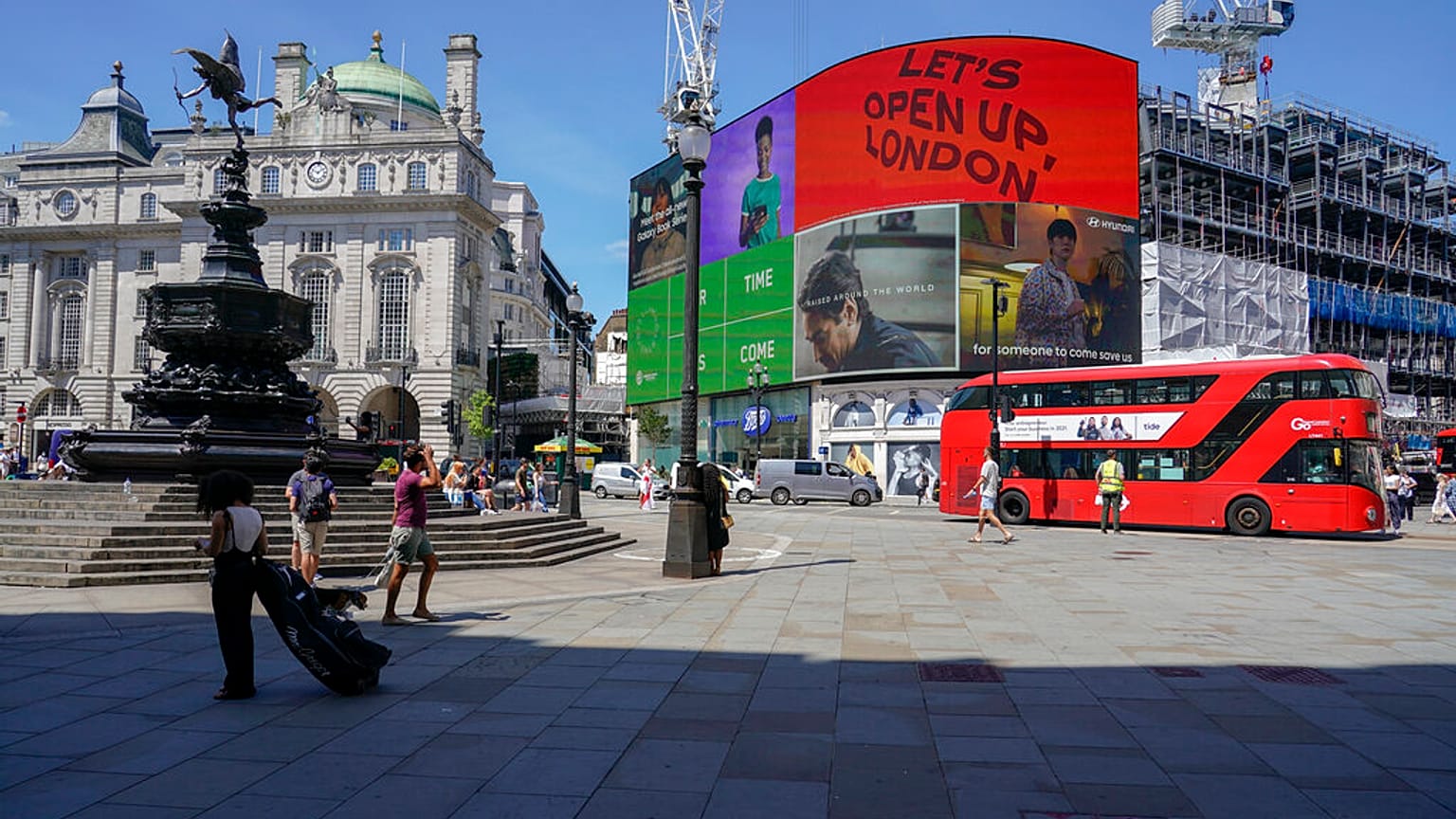The Delta variant first found in India is having a huge impact on vaccine effectiveness in the UK, an expert has told Euronews.
The Delta variant first found in India is having a huge impact on vaccine effectiveness in the UK, an expert has told Euronews.
Dr Michael Head, a senior research fellow in global health at the University of Southampton, said while Britain's vaccine rollout is advanced there is still a quarter of the adult population who have yet to receive a COVID jab.
"It [the vaccine] still protects very well against severe disease, against hospitalisation and deaths but one dose of a vaccine only gives you about 30 per cent protection, two doses are between 60 to 80 per cent. So it makes sense to keep cases as low as we can until that vaccination programme is much more advanced," said Dr Head.
"We don't want vaccine effectiveness to be reduced any further."
He was speaking on the day Prime Minister Boris Johnson postponed the full lifting of COVID restrictions in England due to rising cases of the Delta variant.
Across Europe, there is not yet enough data to confirm whether the Delta variant is dominant, but Dr Head says that given how other variants have spread so easily around the world, we can "expect to see it becoming pretty common across most European countries, particularly as societies start to open up again and people mix more freely".
But so far, he warns, many countries have applied travel restrictions far too late.
"We could learn lessons from the proactive approaches we've seen across a lot of south-east Asia, Australia and New Zealand to border control and travel restrictions.
"That's the key here. Once you see a signal on the graph that it's on the increase then it's already probably too late to implement those restrictions, or they'll have less of an impact."
"We are all disappointed and fed up with the pandemic, but it does make sense to put some restrictions in place. If we do not, we will see increased hospitalisations, which will have a knock-on effect on other areas of health.
"That means other patients in cancer, cardiology or diabetes cannot go to the hospital appointments."
"There is also long covid, with about ten per cent of people experiencing long covid symptoms for many weeks and months beyond their initial infection.
"The consequences of COVID-19 more generally and specifically with this Delta variant are far-reaching, so it makes sense to reduce our cases as much as we possibly can."















